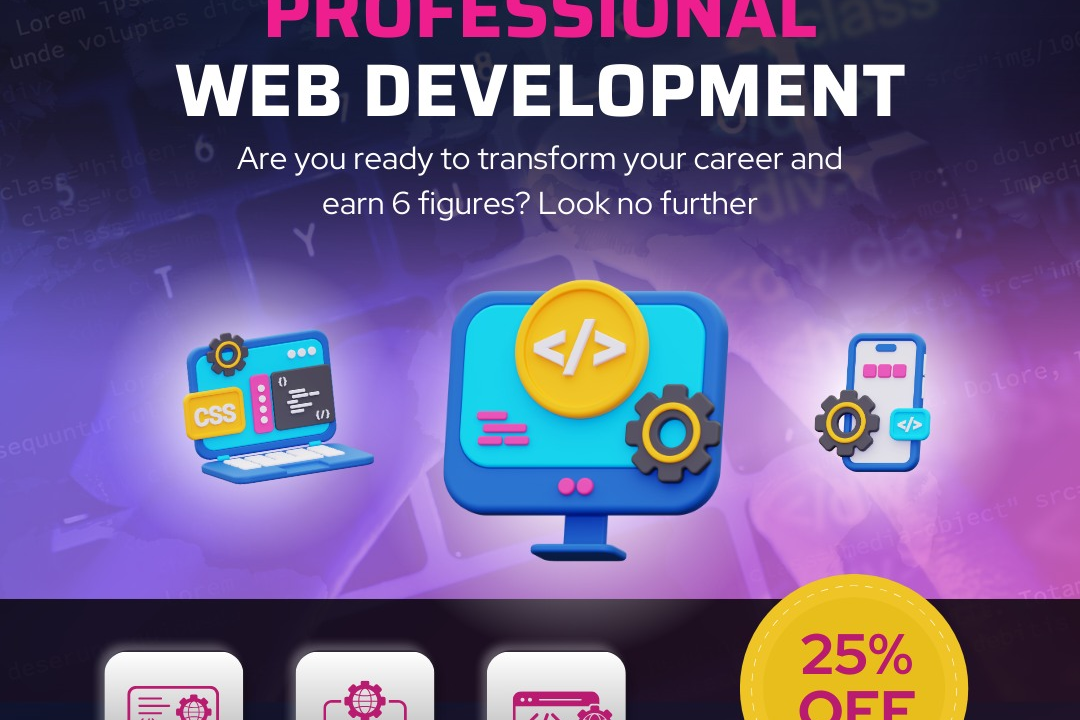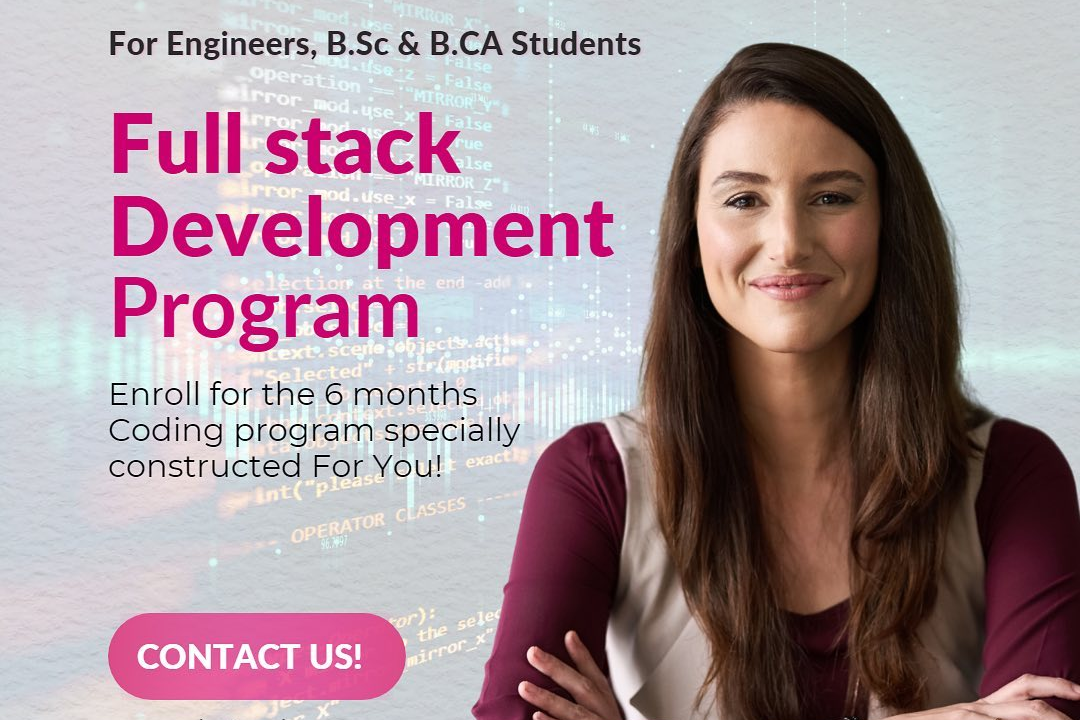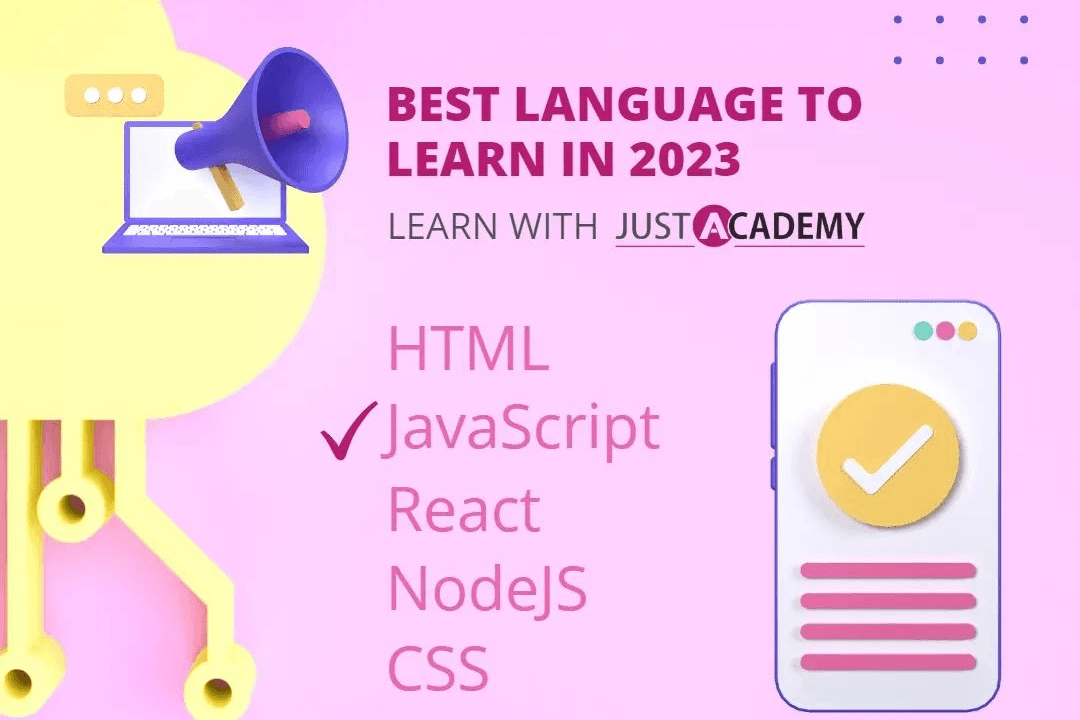Laravel Interview Quyestion
Essential Laravel Interview Questions to Ace Your Next Developer Interview
Laravel Interview Quyestion
Laravel interview questions are essential for both candidates and employers in the tech industry, especially for those seeking roles in web development. They help assess a candidate's understanding of the Laravel framework, its features, and best practices in building robust applications. These questions not only gauge technical skills but also evaluate problem-solving abilities and familiarity with real-time projects. For job seekers with a year of experience, preparing for Laravel-specific inquiries can enhance their confidence and demonstrate their competency, making them more attractive to potential employers. Ultimately, mastering these questions can significantly boost one's prospects in securing a position within the competitive job market.
To Download Our Brochure: https://www.justacademy.co/download-brochure-for-free
Message us for more information: +91 9987184296
Here are 15 Laravel interview questions along with their concise answers:
1 - What is Laravel?
Laravel is a popular PHP framework designed for web application development. It follows the MVC (Model View Controller) architectural pattern, making it easier to organize code and promote best practices in coding.
2) What are service providers in Laravel?
Service providers are the central part of the Laravel application configuration and bootstrapping process. They are responsible for binding classes into the service container and are loaded at the start of the application.
3) Explain Eloquent ORM in Laravel.
Eloquent ORM (Object Relational Mapping) is Laravel's built in database abstraction layer that provides a simple ActiveRecord implementation for database interactions, enabling developers to interact with databases using PHP syntax rather than SQL.
4) What are migrations in Laravel?
Migrations are version control for your database schema, allowing you to define and modify database tables easily. They enable team collaboration and help track the changes in the database structure over time.
5) How do you define a route in Laravel?
Routes in Laravel are defined in the `routes/web.php` file. A simple route is created using `Route::get('/url', ‘Controller@method’)`, which defines the URL, HTTP method, and the function to execute.
6) What are middleware in Laravel?
Middleware are filters that handle HTTP requests entering your application. They can perform tasks like authentication, logging, or modifying request and response objects, and can be assigned to specific routes or globally.
7) Explain the concept of dependency injection in Laravel.
Dependency injection in Laravel is a design pattern that allows a class to receive its dependencies from external sources rather than creating them internally. This promotes better code maintainability and testability.
8) What is Laravel Mix?
Laravel Mix is an API for defining basic Webpack build steps for your Laravel applications using a fluent JavaScript API. It simplifies the setup for CSS and JavaScript compilation, asset minification, and versioning.
9) What is the significance of the `.env` file in Laravel?
The `.env` file stores environment specific configuration variables like database credentials, API keys, and other settings vital for the application. Laravel uses this file to configure settings without hardcoding them.
10) What are the various ways to handle errors in Laravel?
Laravel provides various ways to handle errors, including custom exception handling via the `app/Exceptions/Handler.php` file, using built in error logging with the `Log` facade, and displaying friendly error pages for users.
11 - How can you implement authentication in Laravel?
Laravel provides built in authentication features, which can be implemented using the `php artisan make:auth` command. This sets up the necessary routes, controllers, and views for user registration and login.
12) What is the purpose of Laravel's queues?
Queues are used in Laravel to defer the processing of a time consuming task, such as sending emails or processing uploads, to improve application performance. Laravel supports various queue backends, like Redis and Beanstalkd.
13) How does Laravel handle database seeding?
Database seeding allows you to populate your database with sample data using seed classes that are created via `php artisan make:seeder`. You can then run the `db:seed` command to execute these seeders.
14) What is Blade in Laravel?
Blade is Laravel's powerful templating engine, allowing developers to create dynamic HTML layouts using simple PHP syntax. It supports template inheritance, sections, and includes, making it easy to manage views.
15) Explain the purpose of controllers in Laravel.
Controllers in Laravel handle the incoming requests and return responses. They group related request handling logic into a single class, promoting organized and readable code, and are defined in the `app/Http/Controllers` directory.
These questions and answers cover a broad range of foundational knowledge regarding Laravel that should be useful for candidates preparing for interviews.
Here are additional Laravel interview questions and answers to further enhance your preparation:
16) What is the difference between `get` and `post` requests in Laravel?
GET requests are used to retrieve data from the server and are not meant to alter the state of the server. In contrast, POST requests send data to the server to create or update resources. In Laravel, you can define routes for both using `Route::get()` and `Route::post()`.
17) What are resource controllers in Laravel?
Resource controllers are a shortcut for defining multiple routes to handle resourceful actions (index, create, store, show, edit, update, destroy) for a RESTful resource. You can create a resource controller using `php artisan make:controller ResourceNameController resource`.
18) How can you implement form validation in Laravel?
Form validation in Laravel can be handled using the `validate` method in controllers, which checks the incoming request data against specified rules. You can also create form request classes for more complex validation logic.
19) What is routing and how does it work in Laravel?
Routing in Laravel is the process of linking URL patterns to specific actions in controllers. Laravel uses a simple, expressive syntax to define routes in the `web.php` or `api.php` files, allowing easy management of application routes.
20) Explain the concept of facades in Laravel.
Facades in Laravel provide a static like interface to services in the service container, allowing easy access to classes that are bound to the container. They help simplify syntax and improve code readability while retaining flexibility.
21 - What are events and listeners in Laravel?
Events in Laravel allow you to create a system to subscribe and listen to various application events. Events trigger listeners, enabling actions to occur in response to changes or actions within your application without tight coupling.
22) How does Laravel’s CSRF protection work?
Laravel automatically generates a CSRF token for each user session, which must be included in forms submitted via POST, PUT, or DELETE. This ensures that requests are genuine and helps protect against cross site request forgery attacks.
23) What is query builder in Laravel?
The query builder provides a fluent interface for creating and executing database queries without needing to write SQL. It allows developers to work with database records easily using methods like `select`, `where`, and `insert`.
24) What are jobs in Laravel?
Jobs in Laravel represent a queued task that may be run asynchronously. You can create jobs using `php artisan make:job JobName`, allowing you to encapsulate a task and push it to the queue for later execution.
25) Explain how caching works in Laravel.
Laravel integrates caching to enhance performance by reducing database load and speeding up response times. It supports various caching backends (like Redis, Memcached, etc.) and provides a simple API to store and retrieve cache data.
26) What is Laravel passport?
Laravel Passport is a package that provides a full OAuth2 server implementation for your Laravel application. It is used to authenticate API requests securely via tokens, allowing your application to implement various authentication strategies.
27) How can you handle file uploads in Laravel?
File uploads in Laravel are managed using the `request` class. You can use the `store` method on the uploaded file object to save files to a designated disk, allowing you to specify paths and handles for uploaded files.
28) What is Artisan in Laravel?
Artisan is the command line interface included with Laravel. It provides numerous commands for automating repetitive tasks such as database migrations, seeding, and generating boilerplate code for controllers, models, and more.
29) How can you enable HTTPS in a Laravel application?
To enable HTTPS in a Laravel application, you can force the application to use HTTPS by adding the `url` directive in the `config/app.php` and utilizing middleware to redirect all requests to the HTTPS version of the site.
30) Explain the concept of Alerts and Notifications in Laravel.
Laravel offers a notification system that allows developers to send notifications through various channels like email, SMS, and database. It simplifies the process of communicating with users about important events or updates.
These additional questions delve deeper into Laravel's functionality and features, providing a comprehensive overview suitable for interview preparation.
Course Overview
The “Laravel Interview Questions” course is designed to equip aspiring developers and professionals with the essential knowledge and skills needed to excel in Laravel-related job interviews. This comprehensive program covers a wide range of topics, including routing, middleware, controllers, Eloquent ORM, events, caching, and more, focusing on both theoretical concepts and practical applications. Through real-time projects and hands-on exercises, participants will deepen their understanding of Laravel's framework and its capabilities, ensuring they are well-prepared to answer common interview questions and demonstrate their proficiency in building robust web applications. By the end of the course, learners will gain the confidence to tackle Laravel interviews successfully and advance their careers in web development.
Course Description
The “Laravel Interview Questions” course is tailored for developers seeking to enhance their understanding of the Laravel framework while preparing for job interviews. This course delves into key topics such as routing, controllers, middleware, Eloquent ORM, and more, combining theoretical knowledge with practical applications. Participants will engage in real-time projects to solidify their skills and will be provided with a comprehensive list of commonly asked interview questions and answers. By the end of the course, learners will not only be well-versed in Laravel’s features but also equipped with the confidence to excel in technical interviews, making them highly competitive candidates in the job market.
Key Features
1 - Comprehensive Tool Coverage: Provides hands-on training with a range of industry-standard testing tools, including Selenium, JIRA, LoadRunner, and TestRail.
2) Practical Exercises: Features real-world exercises and case studies to apply tools in various testing scenarios.
3) Interactive Learning: Includes interactive sessions with industry experts for personalized feedback and guidance.
4) Detailed Tutorials: Offers extensive tutorials and documentation on tool functionalities and best practices.
5) Advanced Techniques: Covers both fundamental and advanced techniques for using testing tools effectively.
6) Data Visualization: Integrates tools for visualizing test metrics and results, enhancing data interpretation and decision-making.
7) Tool Integration: Teaches how to integrate testing tools into the software development lifecycle for streamlined workflows.
8) Project-Based Learning: Focuses on project-based learning to build practical skills and create a portfolio of completed tasks.
9) Career Support: Provides resources and support for applying learned skills to real-world job scenarios, including resume building and interview preparation.
10) Up-to-Date Content: Ensures that course materials reflect the latest industry standards and tool updates.
Benefits of taking our course
Functional Tools
1 - Laravel Framework
At the core of the training program is the Laravel framework itself. Laravel is an open source PHP web application framework designed for building robust web applications with elegant syntax. Throughout the course, students will gain hands on experience working with Laravel’s powerful features, such as routing, middleware, and authentication. This foundational understanding is essential for mastering the concepts and techniques that employers commonly inquire about during interviews.
2) PHP Language
Since Laravel is built on PHP, a solid command of this programming language is a prerequisite for the course. Students will refine their PHP skills, including object oriented programming, syntax, and basic algorithms. During the training program, interactive coding sessions will enable learners to apply their PHP knowledge within the Laravel framework, making it easier to answer interview questions related to PHP and Laravel integration.
3) Composer
Composer is a dependency management tool used in PHP that simplifies the process of managing libraries and packages. In the training program, students will learn how to utilize Composer to install Laravel and manage project dependencies effectively. Understanding how to navigate Composer commands and handle package updates will empower students during interviews, as they demonstrate their ability to maintain and build applications using best practices.
4) MySQL Database
Most Laravel applications rely on databases, with MySQL being one of the most popular choices. The training program includes modules on designing and managing MySQL databases, writing complex queries, and using Laravel's Eloquent ORM for seamless interaction with the database. Students will learn to address common database related questions in interviews, showcasing their understanding of data handling and relationships within Laravel applications.
5) Version Control with Git
Git is a widely used version control system that allows developers to track changes and collaborate on code. In the course, students will become proficient in using Git for version control, including branching, merging, and resolving conflicts. By mastering Git, learners will be able to display their collaborative skills and commitment to best coding practices during technical interviews, as these are essential in modern development teams.
6) Postman for API Testing
Postman is a powerful API testing tool that allows developers to create, share, and test HTTP requests. Throughout the training, students will learn how to use Postman to interact with Laravel's built in API capabilities. Understanding how to test APIs and validate responses is crucial in many development roles, and being adept with Postman will make candidates stand out during interviews, particularly when discussing their experience with RESTful APIs.
7) Unit Testing with Laravel
Unit testing is a crucial aspect of software development that ensures code quality and functionality. This training program will introduce students to Laravel's built in testing capabilities using PHPUnit. By learning to write unit tests and automated tests, students will demonstrate their understanding of testing best practices, helping them articulate their analytical and problem solving skills during technical interviews.
8) Middleware and Routing
One of the standout features of Laravel is its middleware and routing capabilities. Students will explore how to create custom middleware to filter HTTP requests entering their applications. Understanding routing concepts will enable learners to effectively manage URL endpoints and handle requests and responses seamlessly. Interviewers often look for candidates who can articulate their experience with routing, making this knowledge invaluable.
9) Authentication and Authorization
Security is paramount in modern web applications. The training program covers Laravel’s built in authentication and authorization systems, teaching students how to implement user login, registration, and role based access control. Mastery of these security features will allow students to answer specifically related questions during interviews, showcasing their understanding of creating secure applications.
10) Blade Templating Engine
Laravel’s Blade templating engine is instrumental for designing dynamic web applications. Students will delve into Blade’s features, such as template inheritance and data rendering. Understanding how to create reusable components with Blade not only enhances developers' productivity but also helps them articulate their experience with server side rendering during job interviews.
11 - Debugging with Laravel Debugbar
Laravel Debugbar is a package that helps developers debug their applications efficiently. This training program will teach students how to use Debugbar to gain insight into performance metrics and application behavior. Familiarity with debugging tools allows candidates to demonstrate their ability to troubleshoot issues in interviews, highlighting their commitment to delivering error free code.
12) Deploying Laravel Applications
Deployment is the final stage in the software development lifecycle. The course will cover best practices for deploying Laravel applications to various environments, including shared web hosting, cloud platforms, and containerization with Docker. Understanding deployment processes is critical for developers, as they can discuss their experience with CI/CD pipelines and hosting solutions during interviews.
13) Building RESTful APIs
In today’s development landscape, knowledge about creating RESTful APIs is essential. The training program will guide students through the process of building RESTful services with Laravel, including routing, controllers, and resource handling. This expertise not only enhances developers’ capabilities but also equips them to answer common interview questions regarding API design and implementation.
14) Event Broadcasting and Queues
Learning how to implement event broadcasting and job queues is essential for developing real time applications. This training will focus on how to use Laravel's event systems for building interactive features, along with using queues for handling tasks asynchronously. Understanding these concepts will enable candidates to showcase their experience with scalable application architecture in interviews.
15) Laravel Package Development
Students will explore the process of creating custom packages within Laravel. This skill is ideal for developers looking to create reusable code and contribute to the Laravel ecosystem. The ability to discuss package development demonstrates a deeper understanding of the framework and makes candidates particularly attractive to potential employers.
16) Integrating Third Party Services
Today's applications often need to connect with third party services (like payment gateways or social media APIs). The program will teach students how to integrate these services seamlessly into their Laravel applications. Experience with third party integrations is frequently sought after in interviews, allowing candidates to present their practical knowledge and adaptability.
By covering these additional points, the curriculum provided by JustAcademy ensures that students are well equipped to meet the demands of the job market, illustrating both their technical proficiency and readiness to tackle real world challenges.
Browse our course links : https://www.justacademy.co/all-courses
To Join our FREE DEMO Session: Click Here
This information is sourced from JustAcademy
Contact Info:
Roshan Chaturvedi
Message us on Whatsapp: +91 9987184296
Email id: info@justacademy.co
Laravel Interview Machine Test
Interview Questions For Experience Node Js Developer












